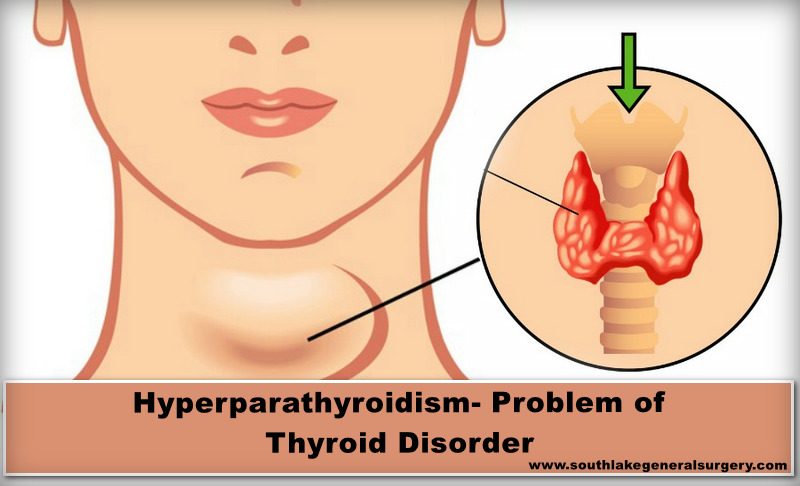Hyperparathyroidism happens when the parathyroid glands make an excess of parathyroid hormone (PTH). The parathyroid organs are four pea-sized endocrine glands situated in neck. Endocrine glands discharge hormones essential for the normal working of the body.
In spite of having comparative names and being contiguous in neck, the parathyroid glands and the thyroid are totally different organs. PTH manages the degrees of calcium, Vitamin D, and phosphorus in bones and blood.
A few people with this condition don’t encounter any side effects or symptoms and needn’t bother with treatment. Others have mellow or serious symptoms that may require surgery.
Types of Hyperparathyroidism
Hyperparathyroidism is classified into three types based on the underlying causes.
- Primary Hyperparathyroidism (pHPT)
- Secondary Hyperparathyroidism (sHPT)
- Tertiary Hyperparathyroidism (tHPT)
Causes of Hyperparathyroidism
In hyperparathyroidism, at least one of your parathyroid glands gets overactive and makes abundance PTH. This could be because of a tumor, enlargement of gland, or other structural issues of the parathyroid glands.
When calcium levels are excessively low, parathyroid glands react by expanding the creation of PTH. This makes kidneys and intestines assimilate a bigger amount of calcium. It likewise removes more calcium from bones. PTH creation comes back to normal when calcium level goes up once again.
Symptoms of Hyperparathyroidism
Symptoms can change from mellow to extreme, contingent upon kind of hyperparathyroidism.
Primary Hyperparathyroidism
Some patients don’t have any symptoms. If you do have symptoms, they can range from mild to severe. Milder symptoms may include:
- fatigue
- weakness
- depression
- body aches
Progressively extreme symptoms can include
- appetite loss
- constipation
- vomiting
- nausea
- over the top thirst
- increased urination
- confusion
- memory problems
- kidney stones
Secondary Hyperparathyroidism
In this type, you may have skeletal abnormalities for example: fractures, swollen joints, and bone deformities`. Many other symptoms rely upon the basic reason, for example, chronic kidney failure or serious deficiency of Vitamin D.
Treatments of Hyperparathyroidism
Primary Hyperparathyroidism
You probably won’t need treatment if your kidneys are working fine, if your calcium levels are just somewhat high, or if your bone thickness is normal. For this situation, your doctor may screen your condition once a year and check blood-calcium levels two times in a year.
Your doctor will likewise suggest observing how much calcium and Vitamin D you get in your meal regimen. You’ll additionally need to drink plenty of water to decrease the risk of kidney stones. You ought to get regular exercise to fortify your bones.
If treatment is essential, surgery is the generally used treatment. Parathyroid Surgery include evacuating extended parathyroid glands or tumors on the glands. Complexities are uncommon and incorporate damaged vocal cord nerves and long haul, low degrees of calcium.
Calcimimetics, act like calcium in the blood, are another treatment of Primary Hyperparathyroidism. These medications can trick glands into making less PTH. Doctor recommend these at times if surgery is worthless or impossible. Bisphophonates, which shield your bones from losing calcium, can help lessen the risk of osteoporosis.
Hormone replacement therapy (HRT) can assist bones with clutching calcium. This treatment can treat postmenopausal women with osteoporosis, in spite of the fact that there are risks associated with prolonged use. These incorporate an expanded risk of certain cancer and cardiovascular disease.
Secondary Hyperparathyroidism
Treatment includes taking your PTH level back to normal by diagnosing the underlying reason. Strategies for treatment incorporate taking prescription Vitamin D for serious deficiencies and calcium, Vitamin D for chronic kidney failure. You may likewise require drug and dialysis if there is chronic kidney failure.
What Is the Long-Term Viewpoint?
As per the Southlake General Surgery, surgery can cure many cases of hyperparathyroidism. If you and your doctor opted to screen your condition as opposed to treating it, settling on a few sound way of lifestyle can assist you overcome symptoms. Drink a lot of water, and regular exercise. You should likewise screen the amount of calcium and Vitamin D you take.

